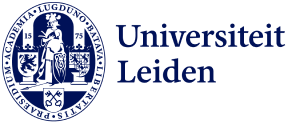About this minor
The Minor Computational Approaches to Disease, Signaling and Drug Targets (CADSDT) is focused on fundamental scientific research required for discovery of new drug targets and development of new drugs. Since computational modelling approaches are increasingly important in disease and drug research, the first part of the minor focusses on modelling skills and computational thinking. In the second part of the minor students learn how disease- and drug-induced alterations in signaling pathways, as well as induced pluripotent stem cells (facultative course with limited capacity), can be used for the discovery of new drug targets and the development of personalized drug treatments.
Chronic progressive diseases such as cancer, diabetes, neurological disorders, or cardiovascular disease result from changes at the cellular level that disturb the biology of healthy tissue. Dissection of the primary molecular mechanisms that underlie both the initiation as well as progression of diseases can lead to the identification of novel targets for drug intervention. The regulation of cell biological processes occurs by complex, cell-specific signal transduction cascades both within affected cells and between different cell types in the affected tissue and/or organism. The interactions of drugs with the biological system can also be studied at these different levels.
The goal of this Minor is to provide insight into general signal transduction pathways, how these pathways are altered in disease and upon modulation with pharmacological agents and how fundamental research of these processes can be used for the discovery of new drug targets. Importantly, part of the Minor focuses on exploiting computational approaches to achieve these goals (which are practiced by hands-on exercises). For example, it shows how these alterations in signaling can be dissected using modeling of network dynamics as well as bio- and cheminformatics approaches. Furthermore, this Minor shows how insights in the changes in molecular pathways of disease constitute the basis for the identification of biomarkers that can be used for monitoring disease progression in patients. This is important for the development of new drugs aiming at modification of disease progression. Mechanism-based pharmacokinetic and pharmacodynamic computational models and disease progression models are presented which, in combination with new biomarkers, constitute a scientific basis to assess the effects of novel drug treatments in clinical trials. For the final course of the minor students choose between a course
- in stem cell biology in drug research, providing fundamental and applied aspects in the differentiation of stem cells and their use in drug research (NB limited capacity of 10 students), or
- on pharmacotherapy, in which various aspects, such as symptoms, (patho)physiology, drug targets and mechanism of action, are discussed, that determine effective drug therapy for a specific set of diseases (NB only taught in Dutch).
Good to know
Admission criteria apply to this selection Minor (see Appendix 2 of the Education and Exam regulation BSc Programmes (OER)). The Minor CADSDT may be split into two parts of 15 EC as shown below, but courses cannot be taken separately as an elective course. This Minor as a whole is particularly suitable for students in Bio-Pharmaceutical Sciences, Biology, Biomedical Sciences, Bioinformatics and Life Science & Technology with an interest in computational modelling. Students in Mathematics, Informatics and Molecular Science & Technology with a strong interest in and basic knowledge of Biology are welcome to apply for Part 1 of the Minor.
Additional information
- CreditsECTS 30
- Levelbachelor
- Selection minorYes
